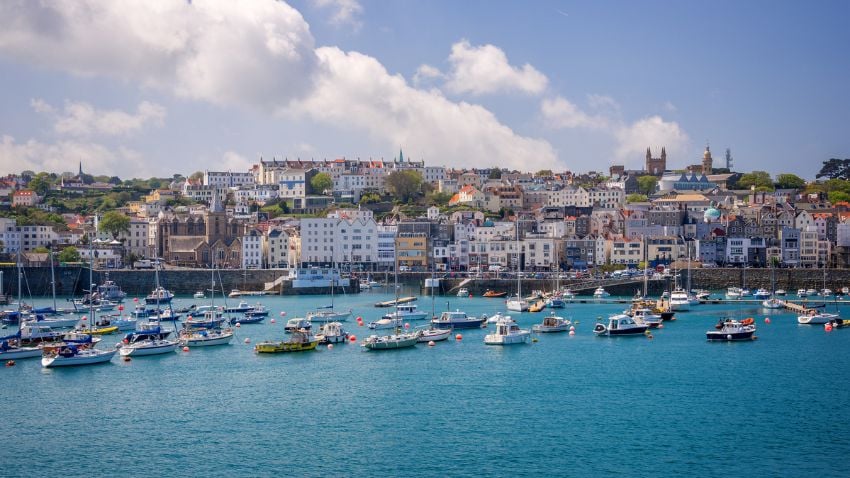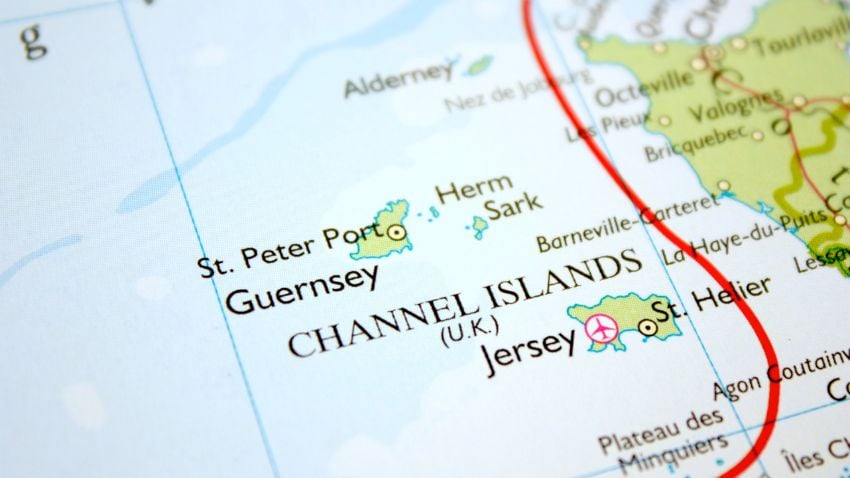Top Things To Do In Panama In 2026
Panama’s geographic size is modest, but its global relevance is not. The country connects two oceans and two continents, operates on a dollarized...

3 min read
For almost 1000 years, Guernsey has remained an autonomous jewel in the Channel Islands. Its rich history can be traced back to the Neolithic, with periods of settlement by the Romans, Normans and even pirates over its 5000 years of known development.
Today, with a population of almost 65,000 and a legal system that combines English Common & Proper Law with the Norman Law of its ancestry, Guernsey has developed a booming financial sector that is encouraged and nurtured by its famous positioning as an attractive destination for businesses and individuals seeking to minimize their financial liabilities thanks to its low tax rates. This transformation into an internationally respected home of finance began in the 1980s and has attracted prominent players in the banking and finance industries to establish themselves in Guernsey. Consequently, the island's pool of talent and experience is impressively vast - in short, it’s a perfect place for you to set up a trust and protect your wealth.

Guernsey on a map.
Trusts are generally made up of a selector, a trustee and a beneficiary. By placing their assets in a trust, the settlor transfers property ownership to the trustee to benefit the beneficiary. The trustee is responsible for managing the trust property and may be required to make periodic distributions of income or principal to the beneficiary, depending on the nature of the trust. In Guernsey, trusts are administered by the Guernsey Trusts Law, 2007 and the Guernsey Financial Commission, which will work to maintain the trustee’s responsibilities. Laws on the island cater generously to those seeking to create trusts, with both the selector and beneficiary being able to remain anonymous on local documentation.
As for the style of the trust itself, you have many choices available in Guernsey. Here are a few to consider:
Charitable Trusts - A charitable trust is a type of trust that is created for the primary purpose of achieving a charitable goal. The trustees are typically responsible for managing the trust's assets and carrying out its objectives. This style of trust has considerable tax benefits.
Non-Charitable Trusts - According to the Trusts Law, 2007 in Guernsey, Non-charitable trusts must nominate an enforcer. The enforcer’s role is to guarantee that the trust fund is managed correctly and that the trusts are only valid in writing. These styles are commonly used alongside binding agreements such as securitizations.
Related content: The Benefits Of Setting Up A Trust In Cyprus

A trust is not only a great wealth protection tool, but it can also be a key player in growing your assets.
Discretionary Trusts - A discretionary trust is a type of trust in which the trustees have discretion over how to distribute the trust's assets among the beneficiaries. The settlor provides a list of potential beneficiaries but does not specify how much each beneficiary should receive. This gives the trustees flexibility to distribute the assets to meet the changing needs of the beneficiaries. Discretionary trusts are often used to provide financial support for family members, such as children or grandchildren. It can also be used to manage assets on behalf of beneficiaries who cannot manage them themselves, such as young children or adults with disabilities. Because of their flexibility, discretionary trusts are a popular estate planning tool and are frequently used offshore.
Fixed Interest Trusts - A fixed interest in possession trust is a type of trust created for the benefit of one or more named individuals. The trustee is tasked with holding and investing the trust fund so that it can provide a regular income stream to the named beneficiaries, often for the length of their lives. This type of trust can also be used for property, allowing a beneficiary to maintain a tenancy in a house for the length of their lives.
These are just some of the ways you can approach the trust process. Regardless of the strategy, you decide on, setting up a trust in Guernsey will allow you to maintain anonymity, guarantee you the company of an experienced financial community and help you preserve your wealth and assets effectively for your beneficiaries. Putting a trust in place in Guernsey has the advantage of offering complete exemption from income tax, should the beneficiaries not be residents in Guernsey themselves. Also, there are no capital gains taxes, inheritance taxes, or other fees or forms of indirect taxation charged in Guernsey. These are all potent reasons why the 24mi² (62km²) island remains such a favoured location for creating trusts.
Related content: The Basics of How To Get a Second Passport Or a Second Residency.

Knowing your assets are protected and well cared for will benefit you with more time to relax and less to worry.
To put together a trust, you will need the following:
Related content: Guide To Setting Up A Trust In Monaco

You can spend more quality time with your family, knowing they're protected by being beneficiaries of your trust.
Thanks to its own unique legal system that supports individuals and businesses, Guernsey has developed a reputation as a prosperous and stable jurisdiction for finance. Guernsey’s historic autonomy means that it is not bound by the same rules and regulations as the UK, making it an ideal location for trusts. With a well-developed financial sector, low taxes and relative political stability, there’s never been a better time to protect your wealth with the amicable assistance of a little island off the coast of Normandy.
If you want the best intel from the expat world, including profitable offshore opportunities, little-known tax-saving strategies, and hard-won insights on immigration, passports, and Plan-B residencies, all delivered to your inbox every single week, then join our daily correspondence, EMS Pulse®. Currently enjoyed by over 84,000 expats and expat-hopefuls worldwide. Fill in the form below to join our newsletter free:

Written by Mikkel Thorup
Mikkel Thorup is the world’s most sought-after expat consultant. He focuses on helping high-net-worth private clients to legally mitigate tax liabilities, obtain a second residency and citizenship, and assemble a portfolio of foreign investments including international real estate, timber plantations, agricultural land and other hard-money tangible assets. Mikkel is the Founder and CEO at Expat Money®, a private consulting firm started in 2017. He hosts the popular weekly podcast, the Expat Money Show, and wrote the definitive #1-Best Selling book Expat Secrets - How To Pay Zero Taxes, Live Overseas And Make Giant Piles Of Money, and his second book: Expats Guide On Moving To Mexico.

Panama’s geographic size is modest, but its global relevance is not. The country connects two oceans and two continents, operates on a dollarized...

Honduras’ newly elected president, Nasry Asfura of the conservative National Party, was sworn in on January 27, 2026. The election, held on November...

For a growing number of Americans, cost-of-living math no longer works. Housing feels harder to reach, everyday costs keep climbing, and long-term...